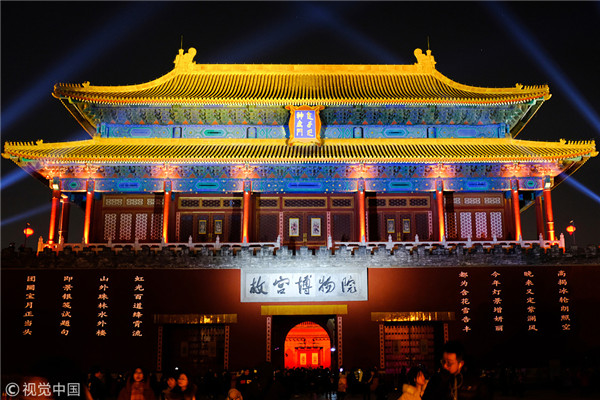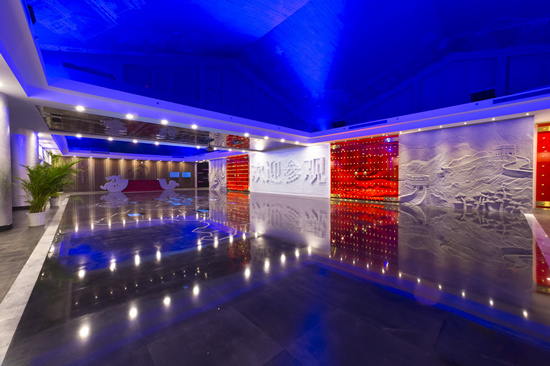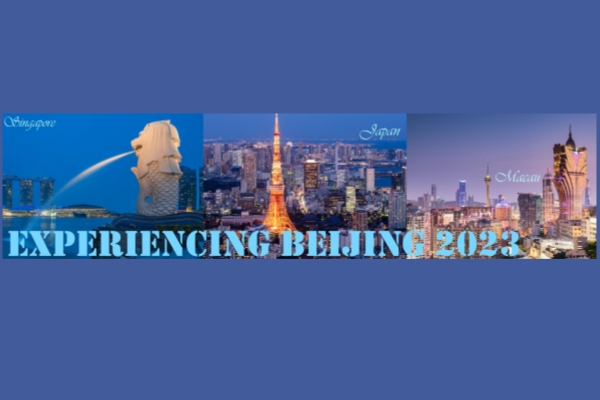Palace Museum lightens up its staid old image

A photo taken on Feb 19, 2019 shows night scenery in the Palace Museum, or Forbidden City, in Beijing. [Photo/VCG]
Editor's note: The Palace Museum organized its first light show on Tuesday evening to celebrate the Lantern Festival. Beijing News comments:
On Tuesday, for the first time, people were able to visit the Forbidden City at night. Three thousand lucky ticket holders were treated to a spectacular light show that illuminated what was China's imperial palace from 1420 to 1911. The show was also broadcast online attracting tens of millions viewers.
The Palace Museum, home to 1.86 million cultural relics, is the largest of its kind in China. But the national treasure trove, like many other iron-bowl public institutes, has long been seen as rather hidebound.
Without really doing anything special, the museum, funded by the government, can attract tens of millions visitors from home and abroad a year without worrying about its income, or improving its services and visitors' touring experience.
However, the museum has apparently decided to up its game, and the management has modernized the museum's image and raised its profile by organizing a series of well-planned and tourist-and consumer-friendly cultural activities, presenting a more hospitable and entertaining entity.
This more up-to-date branding helped the museum generate an estimated revenue of nearly 2 billion yuan ($297 million) last year. And the commercial potential of a more dynamic visitor attraction is thought to be the main factor that has prompted the museum's management to cast aside the dour mien of the past. The light show on Tuesday evening is only the beginning.
To some extent, the Palace Museum has set an example to other museums in the country, most of which seem to be still living in days gone by.
Hopefully, the handsome turnover produced by such visitor-attracting initiatives will be used appropriately to better protect the Forbidden City and raise its international profile of being part of the world's cultural heritage.

 Responsibilities of the SOCAAC
Responsibilities of the SOCAAC Experiencing Beijing 2023
Experiencing Beijing 2023